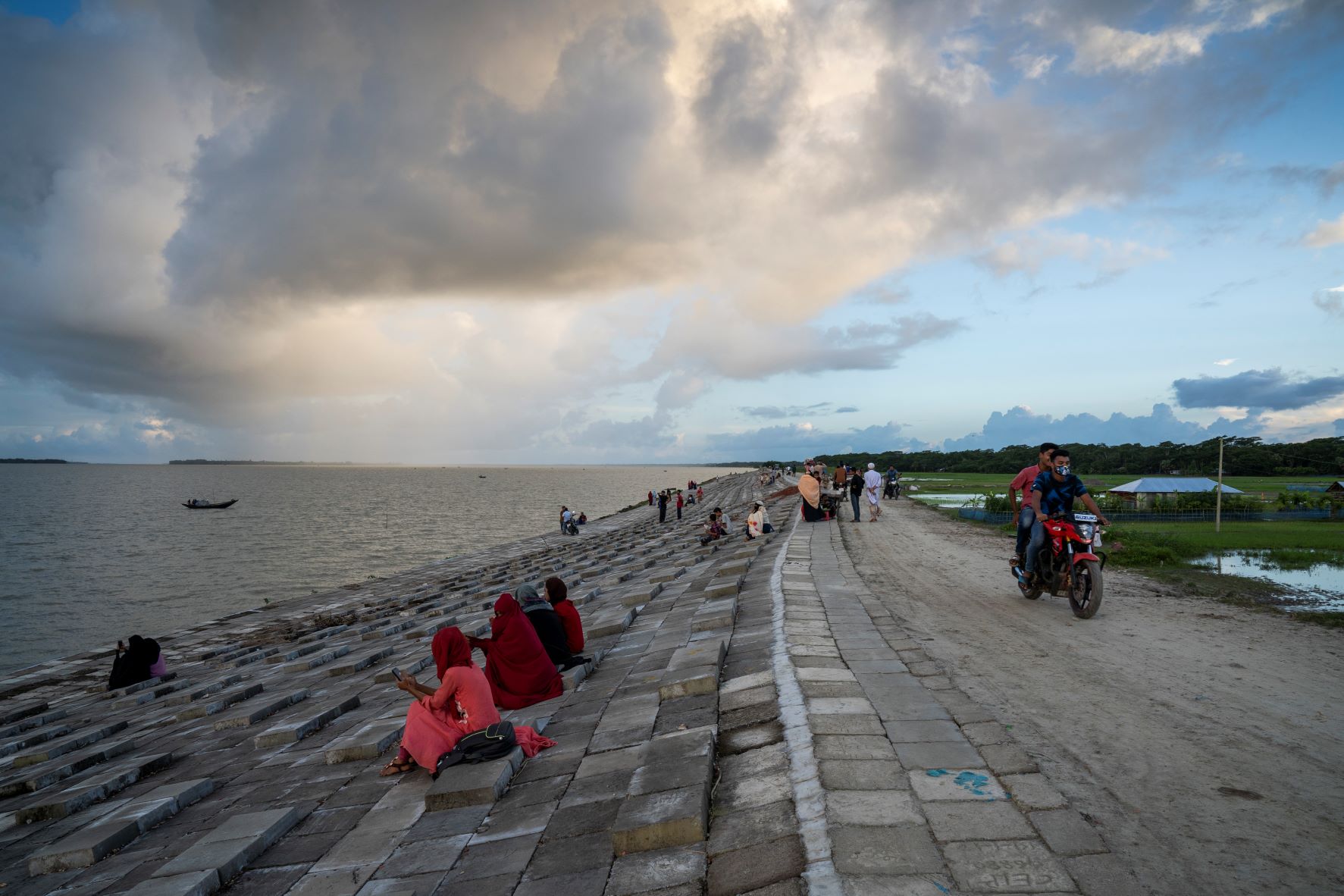 coastal embankment in Bangladesh
coastal embankment in Bangladesh
The unique geographical position of Bangladesh, a low-lying delta, makes the country severely vulnerable to climate change. The people—whether they live in the coastal area in the south, in the north, or even in the capital Dhaka—are subject to the significant risk posed by climate change.
Climate change is not only about floods and cyclones. It is changing our weather pattern: between 1976 and 2019, Bangladesh had a 0.5°C increase in temperature. From analyzing monthly temperature data, we see that summers are getting hotter and longer and winters are becoming warmer. The monsoons are being extended from March to October. Known as a country with six seasons, Bangladesh's distinct seasonal variations are becoming blurred.
And the changing weather pattern and seasonality are impacting our physical and mental health. The World Bank’s recent report ‘Climate Afflictions’ explored the linkage between climate change and infectious diseases and mental health issues. The report finds that climate change is leading to an increase in the spread of respiratory, waterborne, and mosquito-borne diseases as well as mental health issues.
Take the case of the 2019 dengue outbreak in Dhaka, when 77 percent of the country’s total dengue-related deaths occurred in the capital. Erratic weather conditions had a direct hand behind the spread of the disease. That year, Dhaka recorded 115 millimeters of rain in February, which was the highest ever recorded for the city since 1976. The summer months between March and July had a high temperature and humidity, which created ideal conditions for mosquito breeding.
Analysis of weather data for Dhaka indicates humidity levels are falling, temperatures are rising, and rainfall is increasing in the summer months. These climatic changes along with factors like urbanization, travel, and demographic change that affect the spread of mosquitoes, are likely to increase the risk of dengue outbreaks in Dhaka in the future.
So, how is the mental health of people faring through climate change?
New evidence from Bangladesh shows that the weather influences anxiety and depression. In the dry season, for example, people are less anxious but more depressed than in the monsoon. Anxiety increases with a rise in temperature and humidity. Further, women are at higher risk than men for depression, while men are more susceptible to anxiety.
Not only gender but locations also matter when it comes to mental health issues. In Dhaka and Chattogram, prevalence of depression and anxiety are 16% and 31% respectively higher than the national average. With climate change expected to worsen, mental health problems are likely to increase.
What do these all imply?
Climate change is not a problem for the future; it is already happening in Bangladesh. The more the climate changes, the more physical and mental health issues are likely to emerge. Mental health issues are often associated with stigma and overlooked. It is important to mainstream mental health issues through improved assessments and facilitating means to address the shortcomings. The focus should be on both prevention services and treatment, and with a priority given to the most vulnerable, such as the elderly people with disabilities and poor people. Also, it is critical to take a more gender-sensitive approach as men and women react differently to mental health issues.

The time to act is now – climate actions cannot be delayed. It is important to ensure the adequacy of response mechanisms for better adaptation to the effects. So is equally important to trace the evolution of climate-sensitive diseases using more localized weather information and strengthening disease surveillance. For this, the country needs to increase capacity to record accurate weather data at a more localized and granular level and link it to health data. The country can remain better prepared by strengthening disease surveillance and establishing a climate-based dengue early warning system, which will use weather data to predict potential disease outbreaks. Bangladesh also needs to remain prepared with a stronger health system that would avert outbreaks of emerging climate-sensitive diseases.
This month, global leaders gathered at COP26 in Glasgow with the aim to deliver the promises of the Paris Agreement. Honorable Prime Sheikh Hasina is a strong leading voice in COP26 advocating for the countries most threatened by climate change. Earlier, her climate leadership and the Mujib Climate Prosperity Decade Plan 2021-2030 received praise at the 4th CVF-COP26 Dialogue in London. As Bangladesh has led the way in adaptation and disaster preparedness, we believe, that with timely climate actions to make the health sector resilient to climate shocks, Bangladesh will once again lead the way towards a green, resilient, and inclusive recovery.
This article first appeared as an op-ed in The Business Standard.


Join the Conversation